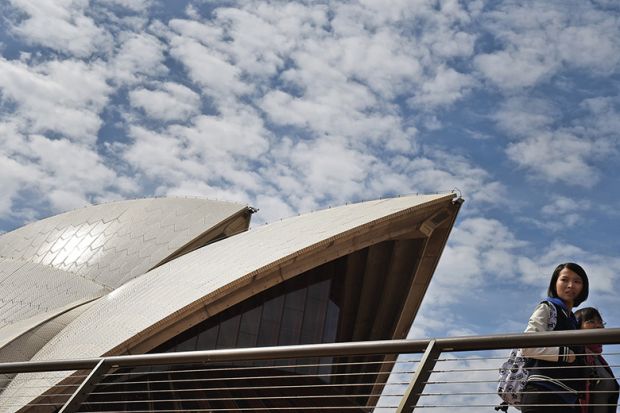The number of Chinese students at Australian universities could decline in the wake of new anti-treason laws that have been portrayed as “anti-China” by the People’s Republic, experts have warned.
Last month, Australian prime minister Malcolm Turnbull announced a series of proposed laws to curb foreign influence in Australian politics. These included banning foreign political donations, requiring registration of lobbyists working for overseas entities and strengthening anti-espionage laws.
There are fears that the way the laws have been portrayed by China’s Communist Party and state-governed media as “anti-China” could result in a significant drop in the number of young people in the country choosing to study in Australia. Chinese Australians have also expressed concerns over a potential anti-Chinese backlash against the whole community.
Following Mr Turnbull’s announcement of the new laws, Australia was voted “the most unfriendly country” to China in 2017 in a poll of about 14,000 Chinese citizens conducted by the tabloid Global Times, which is owned by the People’s Daily.
There are concerns that the issue leaves Australian universities in a double bind. They are under pressure to protect academic freedom following episodes in which Chinese students in Australia – and politicians back in their home country – have denounced lecturers who have been perceived to be critical of China.
At the same time, they want to protect Chinese student numbers: Chinese students make up 30 per cent of international students in Australia and Australian universities will be increasingly reliant on them for income in the wake of planned university funding cuts.
Nick Bisley, executive director of La Trobe Asia and professor of international relations at La Trobe University, said that, while the number of Chinese students in Australia was “quite high” in 2017, “the mood among current and prospective students is souring”.
“There’s a very good chance that the worsening state of Sino-Australian relations will lead to a reduction in the numbers of students from the People’s Republic of China coming to Australian universities,” he said, adding that Chinese students may make their own choice to avoid the country or might be persuaded to do so by the Chinese government.
“The problem Australian universities have is the sheer level of dependence, and absence of diversification strategies for revenue means that, in the short to medium term, they are tied to China and in many ways are at the cutting edge of the increasingly complex ties between Australia and the PRC.”
Merriden Varrall, director of the East Asia Program at the Sydney-based thinktank the Lowy Institute, said that Chinese parents and prospective students will now be “factoring in the possibility that studying in Australia may not be as much of a safe and positive experience as before”.
“The debate as it is framed at the moment doesn’t distinguish between official Chinese views and individual views, and tends to suggest that Chinese people whose beliefs are in line with official perspectives are brainwashed and/or spies,” she said.
Scott Holmes, acting vice-chancellor of Western Sydney University, urged the Australian government to “approach transparency reforms cautiously”.
“Anything that impedes the important work universities undertake with China and other international partners will damage Australia’s standing,” he said.
Register to continue
Why register?
- Registration is free and only takes a moment
- Once registered, you can read 3 articles a month
- Sign up for our newsletter
Subscribe
Or subscribe for unlimited access to:
- Unlimited access to news, views, insights & reviews
- Digital editions
- Digital access to THE’s university and college rankings analysis
Already registered or a current subscriber? Login








